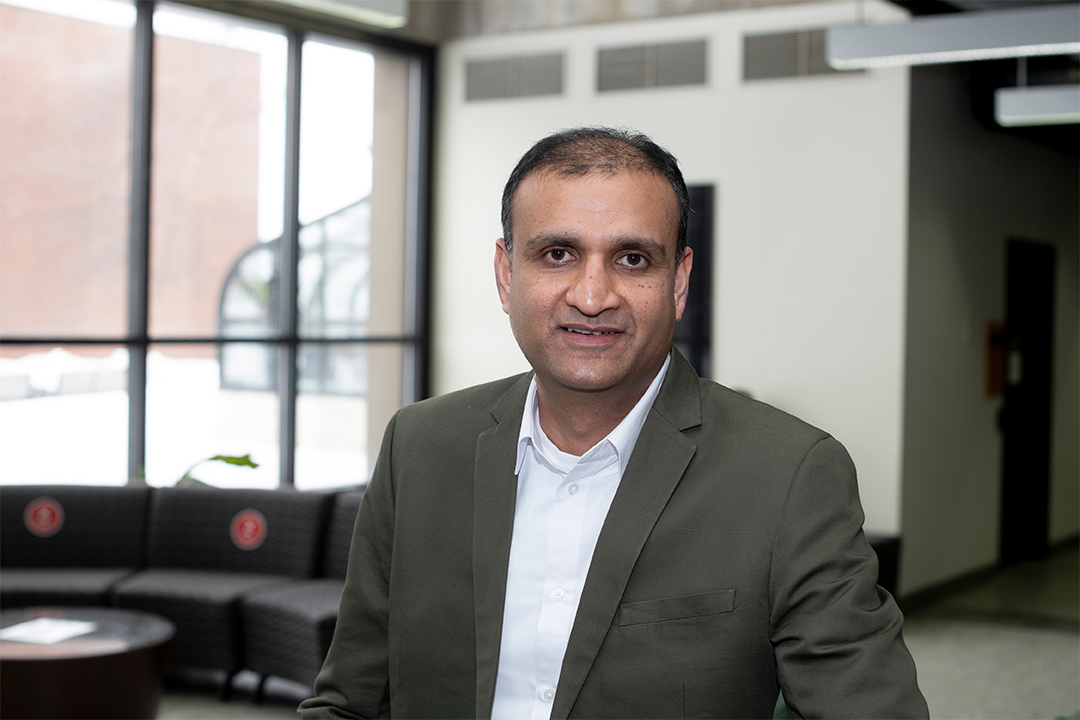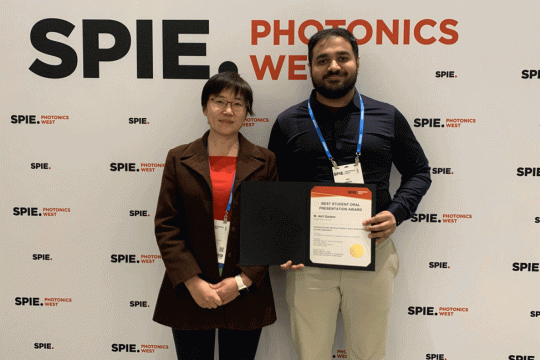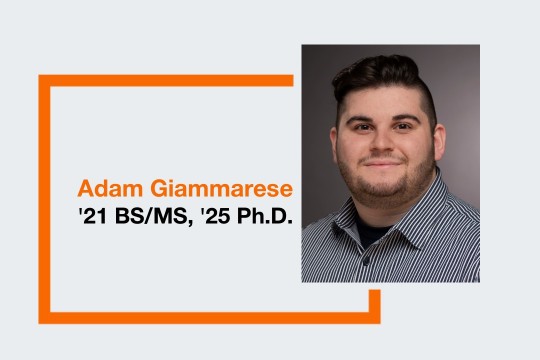RIT’s Pratik Dholabhai earns NSF CAREER Award to study materials in solid oxide fuel cells
Assistant professor from RIT’s School of Physics and Astronomy receives prestigious grant
A. Sue Weisler/RIT
Assistant Professor Pratik Dholabhai from RIT’s School of Physics and Astronomy received an NSF Faculty Early Career Development (CAREER) award.
A Rochester Institute of Technology faculty member has earned a prestigious National Science Foundation award to conduct fundamental physics research on complex materials in solid oxide fuel cells. Assistant Professor Pratik Dholabhai from RIT’s School of Physics and Astronomy received an NSF Faculty Early Career Development (CAREER) award and grant for his five-year project.
Dholabhai will study the movement of ions within solid oxide fuel cells, which creates the basis of operation for electrochemical energy conversion and storage technologies. He will specifically study what happens at the interface of oxide heterostructures, which are an intriguing microscopic class of nanomaterials created by joining two different oxides.
Because the materials are so small, Dholabhai said it is challenging to study them on an experimental level, so he will develop advanced theoretical and computational tools to explain how they behave.
“These are materials that are thousands of times smaller than the width of a human hair and when they are joined together they show better properties than the materials they were made of,” said Dholabhai. “The science has evolved so much yet not much is known about what happens at the interfaces of those complex oxides. Most of the properties that experimentalists and different applications are observing is that the interfaces are doing something, but it’s not clear what.”
Dholabhai said that by better understanding and controlling these properties, scientists can develop more reliable forms of renewable energy that could be used in cars and trucks, solar cells, and many other applications.
The grant will not only fund research, but also educational activities and outreach initiatives focused on utilizing the computer simulations he develops. Dholabhai will engage RIT undergraduate and graduate students from programs including physics and microsystems engineering in the work. He intends to send them to Los Alamos National Laboratory, where he previously worked, to help with research over several summers.
“I’m very excited to help offer students an amazing opportunity to work and get experience at labs,” said Dholabhai. “Both grad and undergrad students will get chances every year to go to the lab, make connections, learn the science, and learn better techniques.”
Sophia Maggelakis, dean of the College of Science, praised Dholabhai for securing the grant, saying “Congratulations to Dr. Dholabhai for earning this esteemed award. This is an outstanding achievement and recognition of his research and contributions.”
For more information about the project, go to the NSF website.








